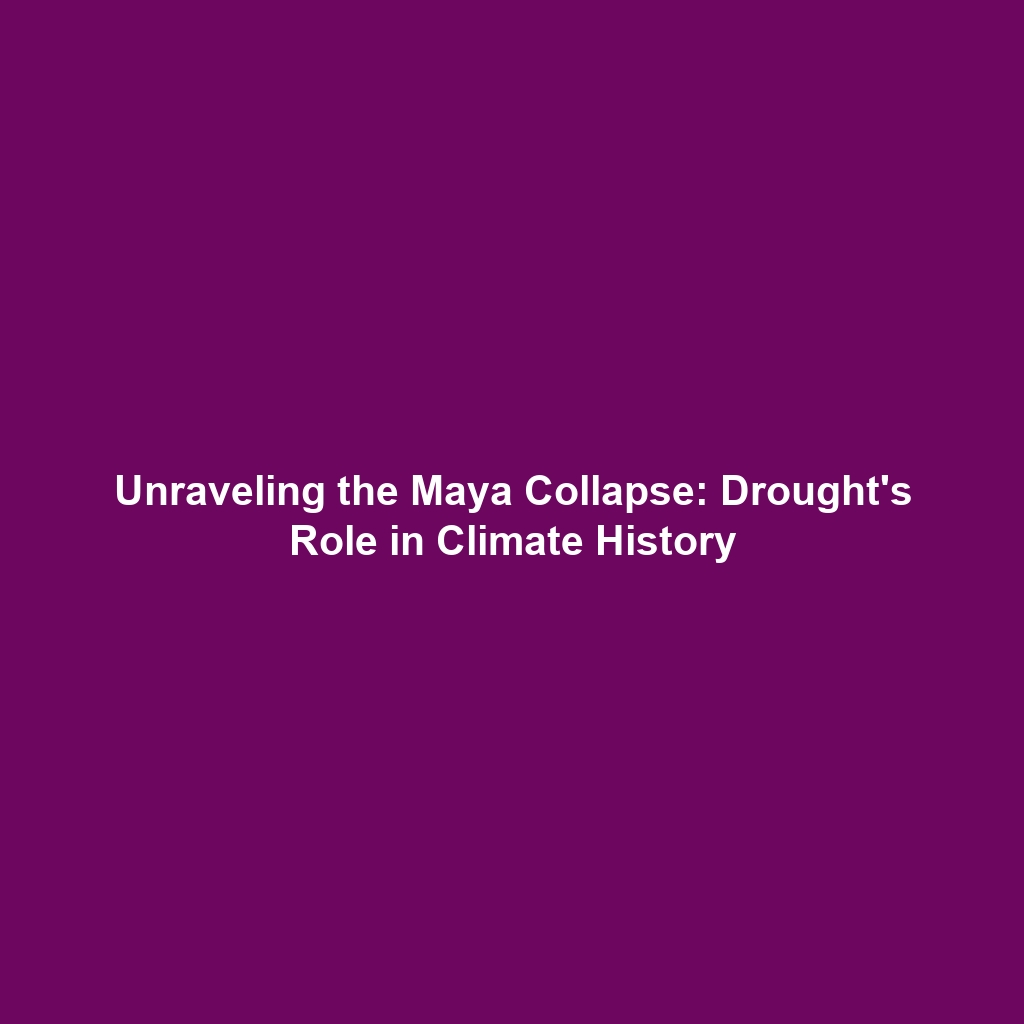The Collapse of the Maya Civilization: Climatic Factors and Their Impact
The collapse of the Maya civilization stands as a pivotal theme in Climate History, underlined by the hypothesis that prolonged droughts played a critical role in its demise. The interaction between climate and human societies has always been a subject of extensive academic inquiry. Understanding this catastrophic event not only highlights the intricate relationship between environmental conditions and cultural development but also serves as a lens through which we can examine our current climate challenges.
Key Concepts in the Collapse of the Maya Civilization
The discussion around the collapse of the Maya civilization incorporates several significant concepts relevant to Climate History:
- Drought Severity: Evidence suggests that severe drought conditions, which spanned several years, coincided with the decline of key Maya city-states.
- Societal Responses: The ways in which the Maya adapted (or failed to adapt) to these climatic changes can provide insights into the resilience of societies.
- Archaeological Findings: Studies of sediment cores and other archaeological evidence have been instrumental in establishing a timeline of climate events that correlate with sociopolitical changes.
Applications and Real-World Uses
Understanding the collapse of the Maya civilization due to climatic shifts has several real-world applications, particularly in Climate History:
- Policy Development: Historical examples of societal collapse due to climate factors can inform current policy responses to climate change.
- Disaster Preparedness: Lessons from past civilizations can aid in developing strategies for mitigating the impacts of future droughts and other climate-related disasters.
- Cultural Heritage Preservation: Recognizing how climate change affects cultural identity encourages the preservation of archaeological sites for future generations.
Current Challenges in Studying Climate History
There are several challenges associated with studying the factors that led to the collapse of the Maya civilization, particularly as they relate to understanding broader Climate History:
- Data Limitations: Incomplete datasets make it difficult to draw definitive conclusions about the climate and its impacts.
- Interdisciplinary Collaboration: Effective study of this topic requires collaboration across multiple disciplines, which can complicate research efforts.
- Public Understanding: Conveying the significance of historical climate events to the public and policymakers remains a challenge in advocating for environmental action.
Future Research and Innovations
The future of research related to the collapse of the Maya civilization is poised for exciting developments that might enhance our understanding of Climate History:
- Advanced Climate Modeling: Next-generation climate models could provide more precise predictions regarding the climatic conditions experienced by the Maya civilization.
- Technological Innovations: New archaeological techniques, including remote sensing and high-resolution imaging, will allow researchers to uncover previously inaccessible areas of study.
- Interdisciplinary Approaches: Combining insights from climate science, archaeology, and anthropology will yield richer narratives regarding the interrelations of climate and society.
Conclusion
In summary, the collapse of the Maya civilization, possibly driven by prolonged droughts, provides critical insights into Climate History. Understanding this significant historical event helps us navigate modern climate challenges. We must continue to explore these connections, drawing on lessons from the past to inform our responses to current and future environmental crises. For further reading on the impact of climate change on ancient cultures, visit our detailed resource page.
